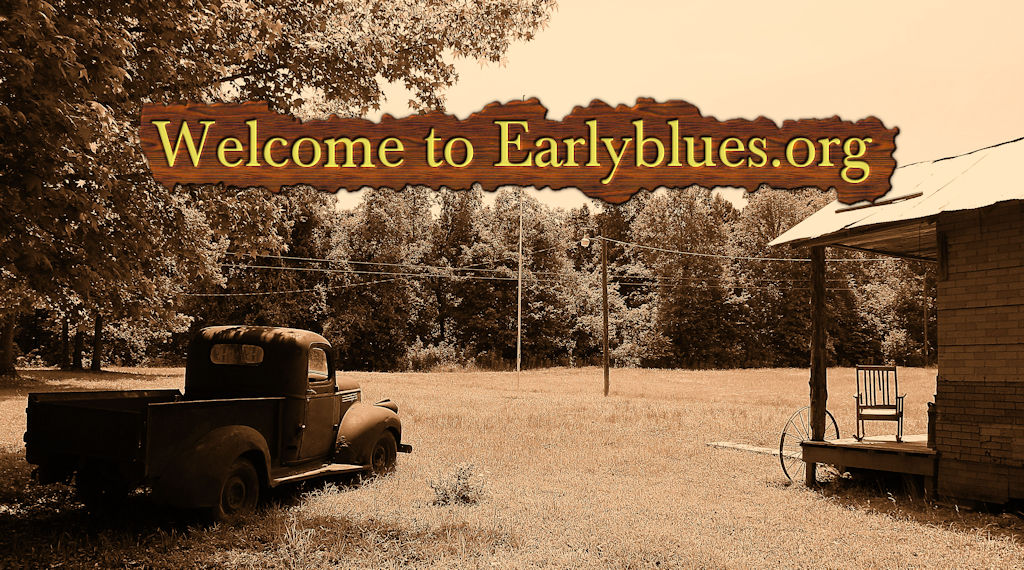‘Long John Baldry’ by Keith Woods, from Tales From The Woods
Raise a glass also to singer/guitarist and a lifelong stalwart of the British blues, Long John Baldry who died on the 21st July 2005 following a severe chest infection aged 64.
A Rock’n’Roll lovin’ kid like me back in the sixties, by now blues would have been a very close second. A musical education by the end of that decade would have included country, soul and a little jazz. Long John Baldry and his Hoochie Coochie Men I would have caught a number of times; Cooks Ferry Inn at Edmonton, the nearby Club Norvik in Tottenham, up west at The Marquee, no doubt The Flamingo as well. As I recall, around mid ’64 someone called Rod the Mod used to hang out with the band, do a couple of numbers and then just… well… err… hang out.
As a Mod boy myself I admired Rod the Mod’s clothes more than any vocal attributes. Of course, The Faces were still quite a long way off and superstar reclusion in Beverly Hills would have seemed a laughable pipedream back then, even for Rod, despite his obvious self confidence. In a couple of years I would catch Baldry again (by now I would have moved away from the parental home, living in bedsit land in West London) at the Klook’s Kleek R&B club in West Hampstead. Rod the Mod had by now gone off to pursue his own career and Long John had a new band, which included Brian Auger on organ, called Steam Packet.
Things would remain that way for a short while before Auger split to team up with Julie Driscoll and in came Bluesology as his backing band with yet another superstar in waiting on piano, Elton John, who was still just plain old Reg Dwight in those days. That’s it basically; I never saw Long John in the decades that followed, living in Canada since around the late 1970s Baldry’s visits to his native country proved to be rare occurrences.
John William Baldry was born on the 12th January 1941, growing up within a middle class family and attending a local grammar school near his childhood home in Queensbury, North London. He sang in the choir at St Lawrence’s, Edgware and it was through a neighbour, who owned an impressive record collection, that a very young John was exposed to jazz and blues. It was the voice and 12 string guitar of Huddie Leadbetter (Leadbelly) that entranced him the most. The neighbour, encouraging his blossoming love of jazz and blues, would take him to see the Crane River Jazz Band during their frequent visits to Kingsbury Bath’s Hall.
Baldry acquired his first guitar at 14 and taught himself to play Leadbelly style. Aged 16 in 1957 he discovered the skiffle and folk scene of Soho where his 6 feet 7 inch frame earned him the nickname Long John. He soon formed a duo with the guitar virtuoso and folk legend-in-waiting Davy Graham, establishing himself on the circuit by the very late fifties, playing both the blues clubs with Alexis Korner and Cyril Davies and the folk sessions run by Ewan MacColl and Peggy Seeger.
When Korner and Davies formed the first amplified blues band in 1962, Baldry was the natural choice as lead singer. Blues Incorporated’s pioneering sessions at the Ealing Club in West London drew audiences that included future members of the Rolling Stones, John Mayall’s Blues Breakers and Manfred Mann to name but three. An album entitled ‘R&B From the Marquee’ would prove to be the only record of the original line-up.
Within a year Korner and Davies had formed separate bands. Baldry chose to go with Davies’, which featured the well respected guitarist Geoff Bradford. The Cyril Davies All Stars built a considerable reputation for themselves during a short period of time which came to a tragic halt when Cyril died suddenly in 1963. Baldry assumed leadership and renamed the group as The Hoochie Coochie Men.
Come 1967 the blues boom had fizzled out and Baldry was persuaded to move into middle of the road pop, hitting massive with ‘Let The Heartaches Begin’ and ‘Mexico’ the following year (1968). His flirtation with pop stardom proved to be short lived and had to be rescued by his two former band members, Rod Stewart and Elton John, who produced the well reviewed album ‘It Ain’t Easy’ (1971).
He emigrated to Canada in the late 1970s, signed to Stony Plain Records and became a popular figure on the blues and folk circuits, returning occasionally to Europe, his final trip in 2003. Fittingly his final album for Stony Plain was a collection of Leadbelly songs.
Keith Woods
____________________________________________________

